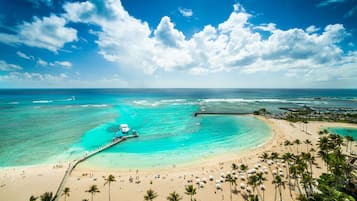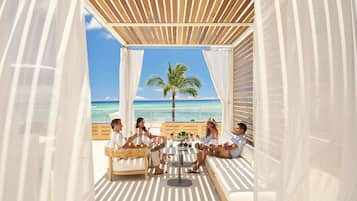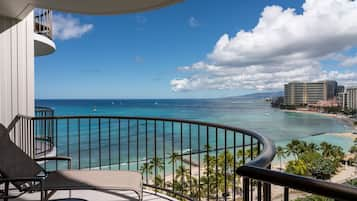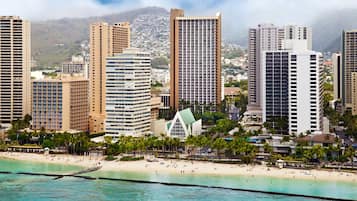Waimea Valley is a verdant parkland and riverine forest on the North Shore of Oahu. The lush area flanks the mouth of the Waimea River where it flows into the namesake bay and an Oahu big-surf spot. The valley is deemed sacred by the locals due to a 17th-century religious site nearby that spans 2 acres.
The area is home to preserved gardens and many make the hike through the forests up to the scenic Waimea Falls. The botanical gardens are home to over 5,000 species of plants in 35 distinct collections. These include the finest of Polynesian plants and some extremely rare native Hawaiian plants.
A local non-profit organisation caretakes Waimea Valley. As a popular highlight spot on excursions up to the North Shore from Honolulu, Waimea Valley is a great place for a day out, discovering local culture and arts through various tours led by native Hawaiians from the organisation.
Waimea Valley in Oahu - one of the highlights of 10 Best Road Trips near Honolulu (Read all about Oahu here)
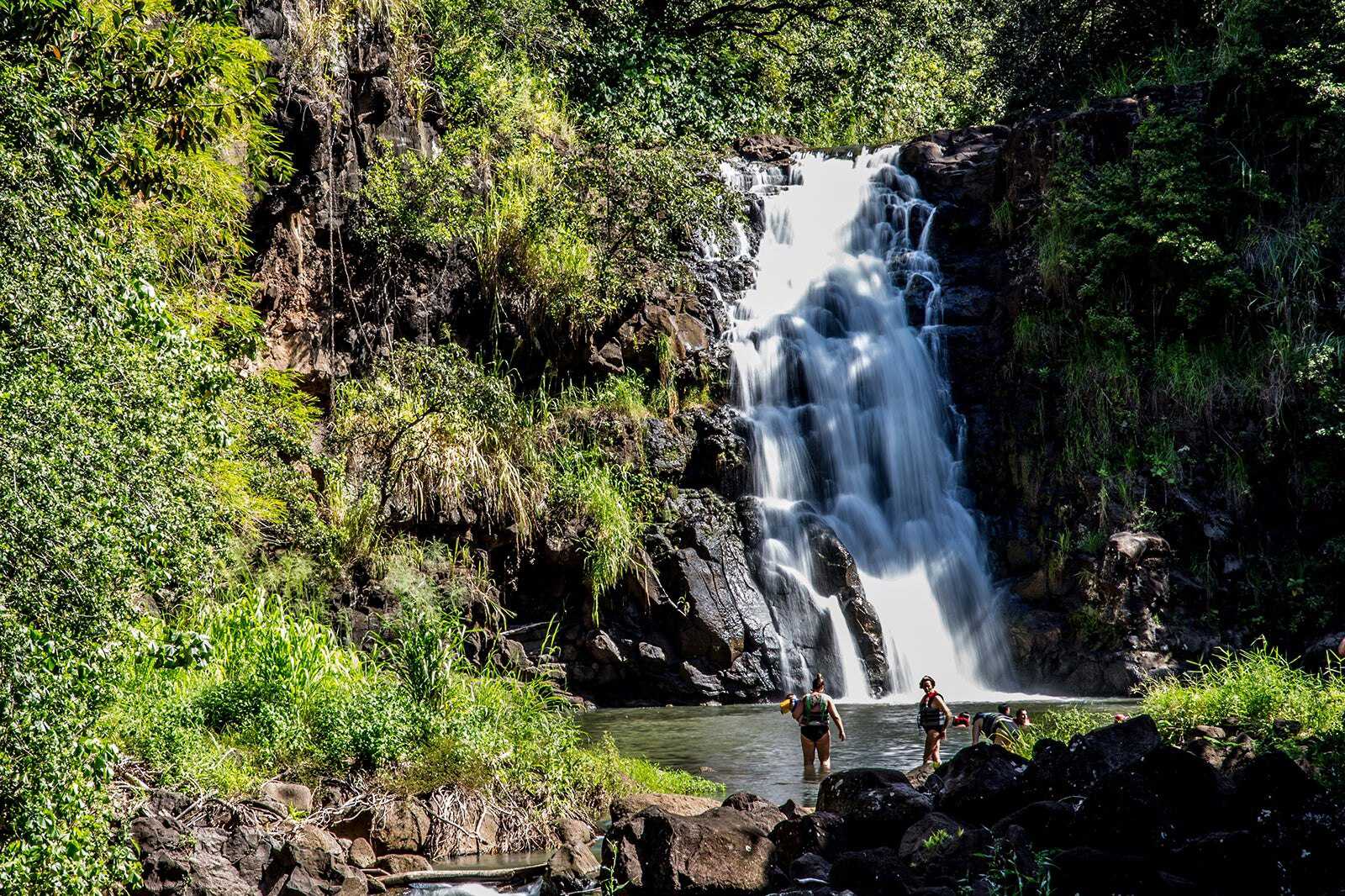
A brief history of Waimea Valley
As an area of historic cultural significance, Waimea Valley is home to some of Hawaii’s earliest religious sites. Early Polynesian voyagers are said to have landed and built agrarian communities as early as 400 AD. The fertile volcanic soil and flowing river provided them with sustenance.
The valley prospered with various tropical fruits and crops and animal farms. The land on the North Shore was awarded to high priests known as Kahuna Nui, and it later came to be known by its nickname, “The Valley of the Priests.” It was a site of various indigenous religious activities.
Kamehameha I conquered O‘ahu in 1795 and awarded Waimea Valley to his favourite Kahuna Nui, Hewahewa. After the king died in 1819, Hewahewa ruled the valley as chief. But kapu – traditional Hawaiian rule – soon crumbled due to foreign influences and the rise of Christianity.
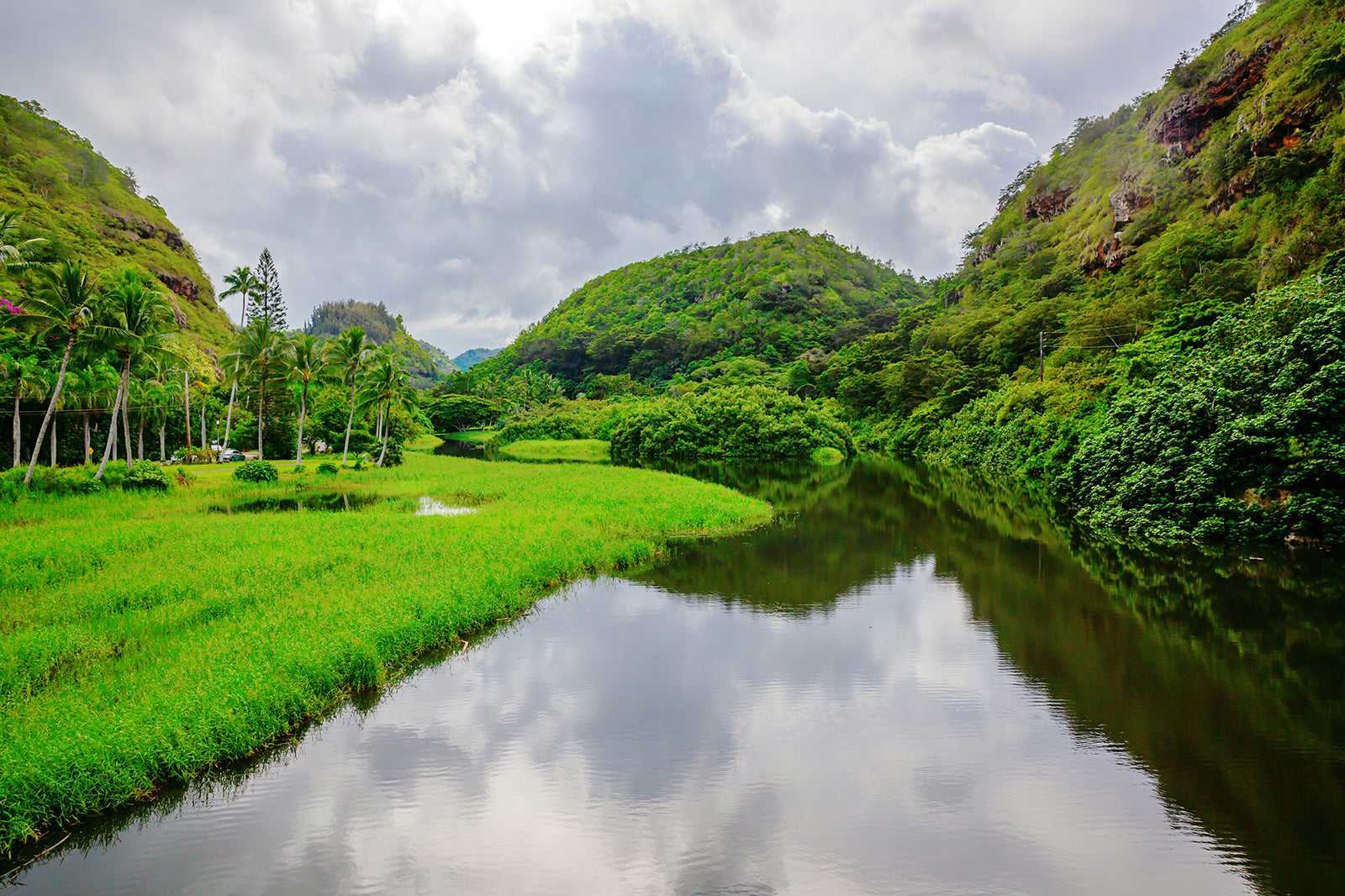
What are the highlights of Waimea Valley?
The valley was an ahupua‘a, or a division of land that provided natural resources at each elevation to support a community. These range from medicinal plants in the highlands, trees for homes and canoes in the valleys, farmland in the lowland plains, and aquaculture on the shore.
Hi'ipaka LLC is the local non-profit organisation tasked with overseeing the maintenance and preservation of the valley. You can see a lot of the ahupua‘a legacy of Waimea Valley in the botanical gardens with its vast collection of tropical and subtropical plants. Botanical tours take place on Thursdays, as well as the 1st and 3rd Sundays of the month.
Just up on the hills on the valley’s north side lies the sacred grounds of Pu’u O Mahuka Heiau, the largest heiau or Hawaiian place of worship on Oahu. It was destroyed following the abolishment of kapu (ancient Hawaiian law) but remains one of Hawaii’s most significant archaeological sites. It’s the place to go for breathtaking views of both the valley and bay, too.
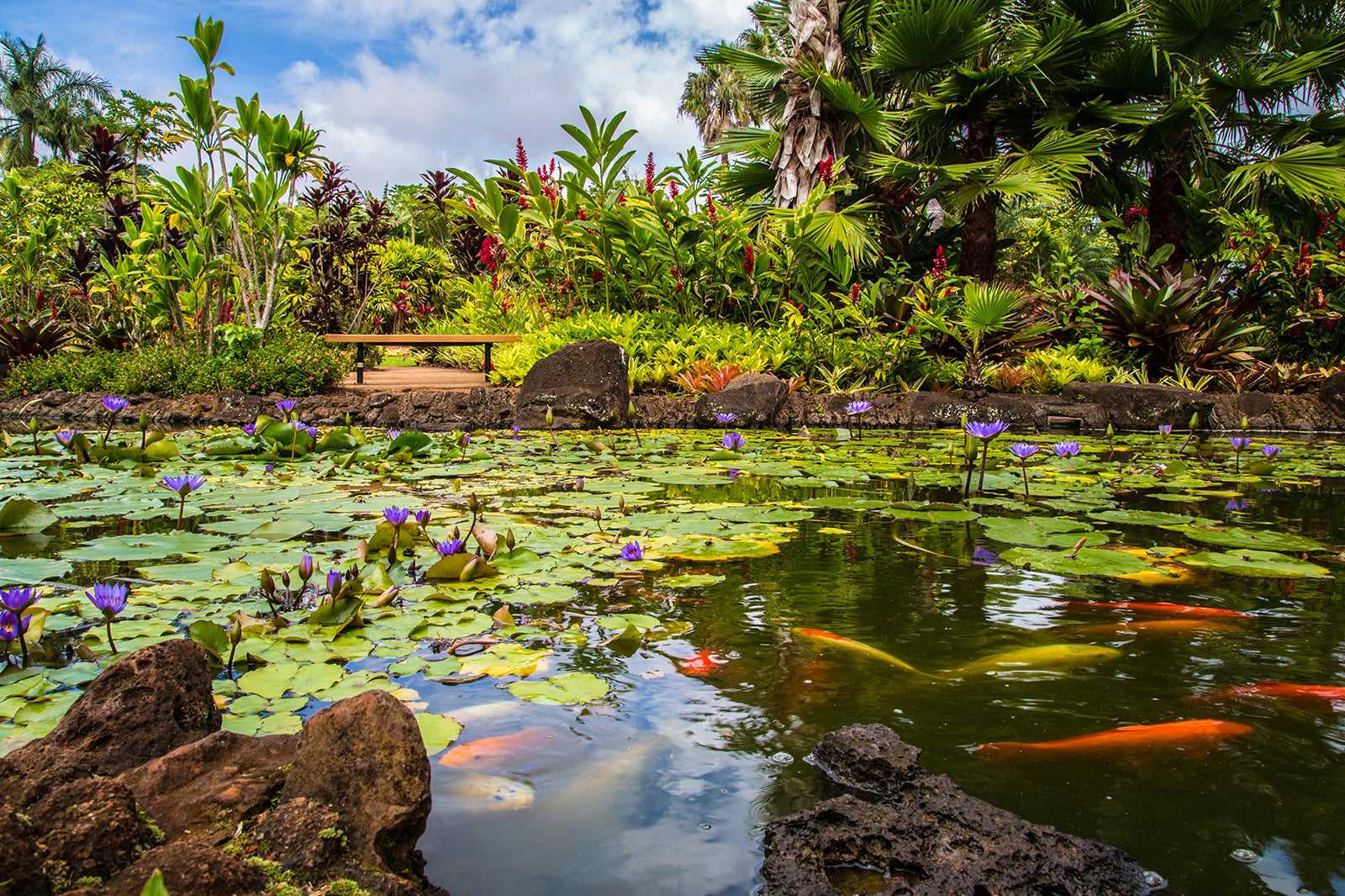
Good to know about Waimea Valley
Many visitors head up to the Waimea Falls on their visit to Waimea Valley. If you also plan to, remember to bring both good hiking shoes as well as swimming gear and a change of clothes as you can take a cool and rewarding dip under the 46-ft-tall waterfall.
Waimea Valley is about an hour’s excursion by car north from Downtown Honolulu. Most travellers combine either the falls, the heiau, the botanical gardens, or the beaches of Waimea Bay, Three Tables, and Banzai Beach further north on their road trip to the North Shore.
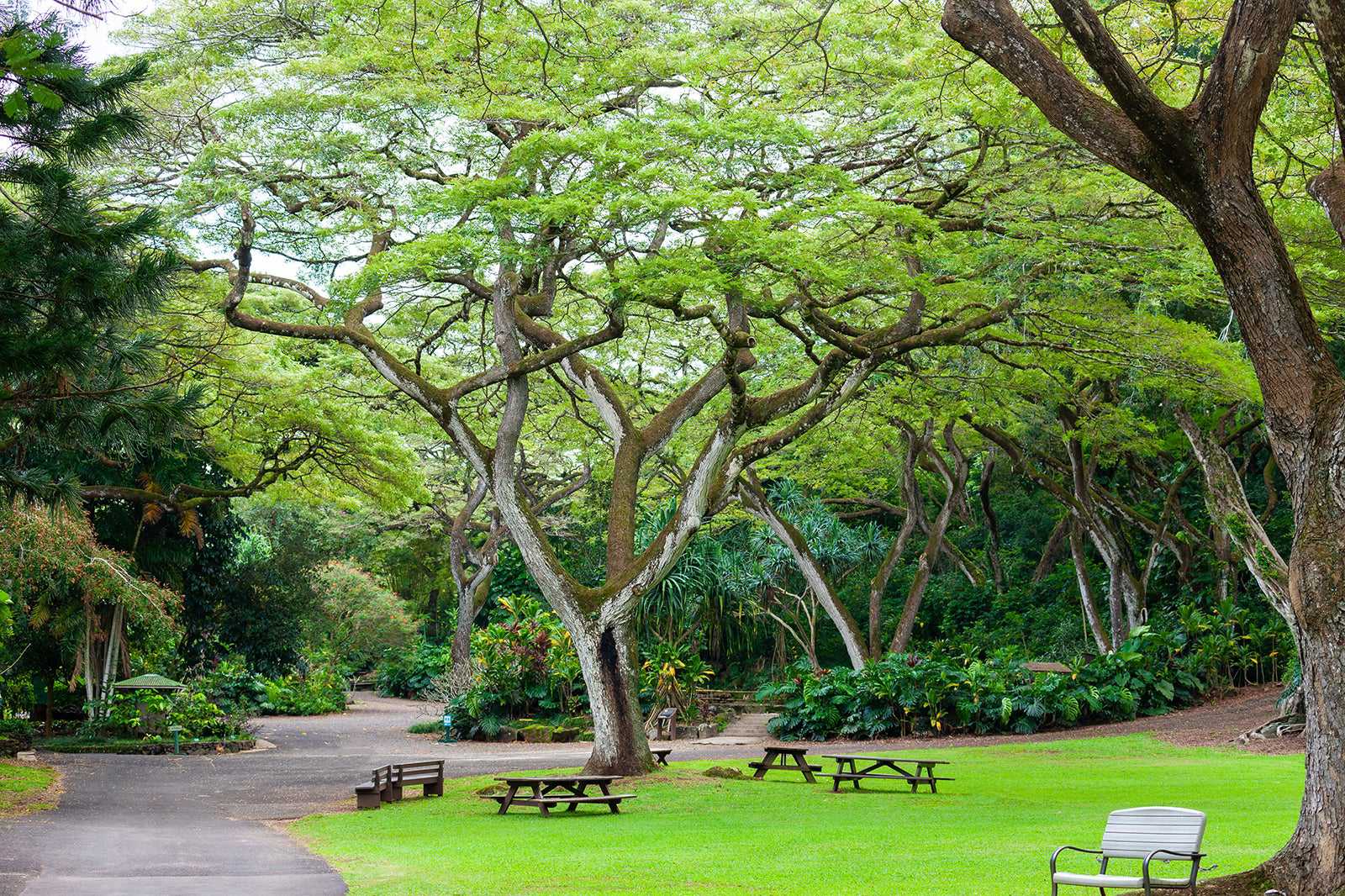
Waimea Valley in Oahu
Emplacement : 59-864 Kamehameha Hwy, Haleiwa, HI 96712, USA
Ouverture : Tuesday–Sunday from 9 am to 4 pm (closed on Mondays)
Téléphone : +1 808-638-7766


